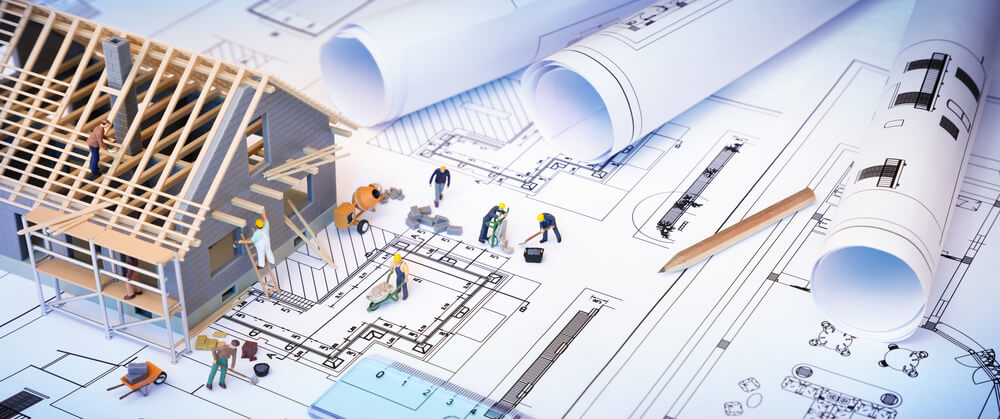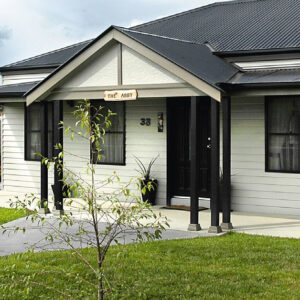Building a home from the ground up is a very rewarding experience. You are able to watch a site be vacated and a new homestead take its place. However, it’s often overlooked just how involved this process is.
This is largely due to the fact that those who choose to customise their home are tasked with a huge responsibility. Not only will you be required to detail orientation aspects, but also elements pertaining to the floor plan, room layouts and inclusions.
In essence, this means working out the location of the laundry within the home. Decisions will need to be made regarding the location and quantity of power points. Elements of natural light will also need to be taken into consideration.
While seemingly small decisions, each has their own impact on both the aesthetics and functionality of your new home. Highlighting the importance of understanding and later implementing both common and on-trend design inclusions.
Inclusions to consider when building a home
When building a home, it’s important to give due consideration to the four stages of building and just as importantly, inclusions. This is because inclusions will work towards improving the functionality, flow and overall appearance of your home.
The best way to handle inclusions is to break it down room by room. This will help those either designing from scratch or adapting current designs. As such, this really is the difference between creating a seamless home and a home where there is a lot of dead space.
Entrance
The entrance of your home is the space that provides visitors with their first impression. As such, everything has to be perfect. This means choosing a front door that meets both style and size requirements. It also means choosing handles and locks that act complementary.
However, the entrance isn’t just about the doors and associated hardware. In this space, it’s important to look to the future. As such, a key inclusion could be that of a mudroom. A space that will prove helpful for those with small children or pets.
A mudroom can be as sophisticated or low key as you like. Essential elements include storage spaces for things like coats or a place to put down bags and keys. Some people choose to have a bench where you can place shopping bags or sit down to take off shoes.
Kitchen
One of the most important spaces in the home is the kitchen. However, a kitchen comes complete with an array of different inclusions. These inclusions range from cabinetry and appliances to tapware and sinks. For further functionality, consider adding cabinet lighting.
While a kitchen is a highly functional space, it also provides a chance to help you reinforce your home’s style. For example, those going for the Hamptons look might choose blue cabinetry with gold handles. Rather than a single sink, a double sink may be installed. It’s also becoming a popular choice to install a pot filler tap on the wall behind the stove.
An inclusion that is also quite on-trend at the moment is a double kitchen island bench. This is an especially helpful inclusion if there is more than one cook in the family. This enhanced island bench gives each cook their own space to prep and clean up.
Laundry
Laundries are another space in the home that really benefits from custom inclusions. Of course, home owners will need to decide the size of the space, if a sink will be present and then of course, tapware.
Having dedicated cabinetry in the laundry is also a must have. For example, one wall might house the washing machine, dryer and sink. The opposite wall may be floor to ceiling cabinets to help store towels and bed linen. You may even install a central vacuum system that is housed in the laundry.
In terms of laundries, one design option is to have the room situated upstairs where the bedrooms and bathrooms are. This way, laundry doesn’t have to be carried throughout the house. Others might even choose to position their laundry in the garage.
Bedrooms
Bedrooms are a place where we go to retreat, relax and reset. As such, inclusions need to reflect this. However, it’s worth noting that bedroom inclusions are extremely personal. This is because what works for one person might not work for another.
For example, you may want to have a walk-in closet situated behind the bed. For some people a single walk-in is ideal. For other people, his and her closets are a must. Some people may even require enough room in the closet for a dressing area.
When it comes to designing bedrooms, it’s also important to account for aspects of natural light. If your bedroom and the windows are not positioned correctly, you may be kept up by rays of light shining through the room.
Bathrooms
When it comes to designing a bathroom, the important thing is to select inclusions that are easy to maintain. With so much moisture present in these areas, you want inclusions that will stand the test of time with the help of a quick wipe down.
In bathrooms, it’s also important to look to the future. Will you need a bathtub for any future kids? Will an easily accessible shower be required during your twilight years? Do you foresee a need for heated flooring to provide warmth in the cooler months or comfort to tired limbs?
Living spaces
Living spaces are essentially the hub of the home. Whether containing a lounge room and dining room or just a lounge room, these spaces attract multiple people at any given time. With this in mind, there are key inclusions to account for when designing living spaces.
The first is of course the appropriate power points, television sockets and cables. Without these, you may be stuck fighting over one power point. With technology in mind, a modern day trend is the inclusion of smart devices such as voice control to automate daily functions.
Spare rooms
A recent trend is that of leaving room for a space where you can do what you love. This space could be an area to play an instrument, paint or play video games. To add drama, you can design this space as a hidden room accessible by pulling the right book off the bookshelf.
Outdoor entertaining
Perhaps the most popular inclusion is that of seamless outdoor entertaining. This essentially means creating a living area that extends from inside the house to the outside. This space could contain a kitchen and dining area or act as an additional living space.
Choosing the right inclusions for your dream home
When designing a home, there are many inclusions to choose from. While these inclusions offer increased functionality and aesthetic appeal, they can prove overwhelming. As such, it can be tempting to try and include everything that opens and shuts.
In order to stay on time and on budget, approach inclusions with a mindset to create life easier for you. For some, this might mean including a sprawling outdoor living area that can house all their friends and family. For others, it might mean including a room for crafts.
If you’re struggling with turning your home-build ideas into a reality, reach out to one of our experienced consultants at Kitome. We can support you through the whole process and ensure that your new home is built to perfection.





